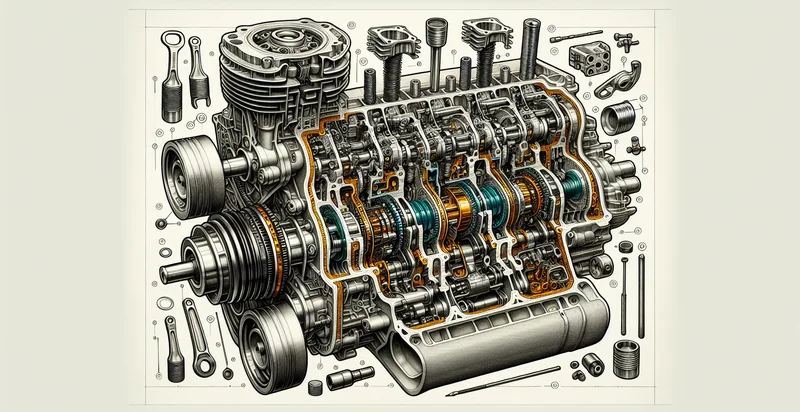Identify engine code
using AI
Below is a free classifier to identify engine code. Just input your text, and our AI will predict the type of engine code it corresponds to - in just seconds.

Contact us for API access
Or, use Nyckel to build highly-accurate custom classifiers in just minutes. No PhD required.
Get started
import nyckel
credentials = nyckel.Credentials("YOUR_CLIENT_ID", "YOUR_CLIENT_SECRET")
nyckel.invoke("engine-code", "your_text_here", credentials)
fetch('https://www.nyckel.com/v1/functions/engine-code/invoke', {
method: 'POST',
headers: {
'Authorization': 'Bearer ' + 'YOUR_BEARER_TOKEN',
'Content-Type': 'application/json',
},
body: JSON.stringify(
{"data": "your_text_here"}
)
})
.then(response => response.json())
.then(data => console.log(data));
curl -X POST \
-H "Content-Type: application/json" \
-H "Authorization: Bearer YOUR_BEARER_TOKEN" \
-d '{"data": "your_text_here"}' \
https://www.nyckel.com/v1/functions/engine-code/invoke
How this classifier works
To start, input the text that you'd like analyzed. Our AI tool will then predict the type of engine code it corresponds to.
This pretrained text model uses a Nyckel-created dataset and has 18 labels, including Aftermarket, Custom, Electric, Experimental, Factory, Hybrid, Modified, Nonstock, Original and Performance.
We'll also show a confidence score (the higher the number, the more confident the AI model is around the type of engine code it corresponds to).
Whether you're just curious or building engine code detection into your application, we hope our classifier proves helpful.
Related Classifiers
Need to identify engine code at scale?
Get API or Zapier access to this classifier for free. It's perfect for:
- Automotive Fault Diagnosis: This function can be used to classify engine codes generated by vehicles' onboard diagnostics systems. By accurately identifying fault codes, automotive technicians can quickly diagnose issues, reducing time spent on troubleshooting and improving repair efficiency.
- Predictive Maintenance: Businesses can leverage the engine code identifier to analyze patterns in engine codes over time. This data can help in predicting when maintenance is needed, allowing companies to schedule repairs proactively and minimize costly downtime.
- Vehicle History Reporting: When buying or selling used vehicles, the engine code identifier can be employed to check historical engine codes. This tool provides insights into past issues and repairs, facilitating informed decisions by buyers and enhancing transparency in the used car market.
- Fleet Management Optimization: Fleet operators can implement this function to monitor and classify engine codes across multiple vehicles. This centralized control can streamline maintenance scheduling and resource allocation, ultimately improving fleet reliability and operational effectiveness.
- Insurance Claim Assessment: Insurance companies can use the engine code identifier during claims processing to validate vehicle issues. Accurate classification of engine codes can help determine the legitimacy of claims related to engine failures, potentially reducing fraudulent claims.
- Training and Development for Technicians: Automotive training programs can integrate this classification function as part of their curriculum. By familiarizing future technicians with engine code identification, students can gain valuable hands-on experience that aligns with real-world diagnostic practices.
- Performance Monitoring for Tuning Services: Automotive tuning shops can utilize the engine code identifier to assess the impact of modifications on vehicle performance. By monitoring engine codes before and after tuning, businesses can ensure enhancements are beneficial and not causing unintended mechanical issues.


